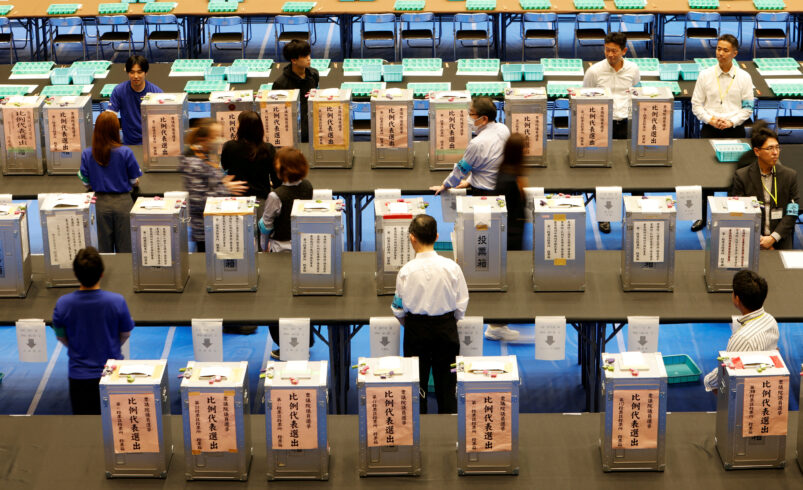
How Japanese Election Impact the Stock Market: History and 2024 Outlook
Japan’s stock market has a historical tendency to respond closely to political shifts, with government stability playing a significant role in investor confidence and stock performance. With the 2024 general election underway, the country faces a unique blend of challenges—political scandals, rising economic anxieties, and intense regional security concerns—all influencing market sentiment. This article examines how government changes in Japan have previously impacted the stock market, what factors are at play in the 2024 elections, and how these might shape future trends.
Political Stability and Investor Confidence: A Historical Overview
Japan’s Liberal Democratic Party (LDP) has been a dominant political force for decades, holding power almost uninterrupted since 1955. This political continuity has fostered an environment of predictable fiscal policies, which typically appeals to investors. When the LDP maintains power with a stable majority, it is generally associated with a positive stock market response as investors feel more confident about economic policy continuity. However, political turmoil or leadership changes within the LDP, as seen with Shinzo Abe’s 2020 resignation and Fumio Kishida’s recent departure amid a corruption scandal, have often led to market volatility as investors recalibrate their expectations.
The last major political shift occurred when the Democratic Party of Japan (DPJ) briefly governed from 2009 to 2012. This period was marked by uncertainty in the stock market, partially due to differences in economic strategies between the DPJ and LDP. Investors tend to prefer the stability and pro-business stance of the LDP, which often translates into steady or even bullish market behavior when the LDP maintains control
2024 Election Dynamics: Key Issues Influencing the Stock Market
The 2024 general election presents unique challenges for the LDP, now led by newly appointed Prime Minister Shigeru Ishiba following Kishida’s exit. The party is contending with public disillusionment due to multiple scandals and rising consumer prices, putting its long-standing dominance at risk. This environment of political uncertainty has led to increased volatility on the Tokyo Stock Exchange as investors anticipate possible shifts in Japan’s fiscal and social policies.
Economic and Social Concerns
Amid inflationary pressures, especially on food staples like rice, and stagnant wages, economic issues are central in this election. A change in government—or even a weakened LDP majority that requires coalition governance—could lead to new economic policies that might either reassure or unsettle investors. For instance, the opposition Constitutional Democratic Party (CDP) proposes increased social welfare spending, which might spur consumer spending but also raise concerns over fiscal sustainability and debt levels
National Security and Foreign Policy
Rising regional tensions, especially concerning North Korea and China’s assertive posturing, have elevated defense policy as a priority in this election. The LDP traditionally aligns with pro-U.S. security policies and advocates for increased defense spending, a stance that is generally market-friendly as it aligns with Japan’s strategic stability. However, more progressive or reformist opposition parties have criticized this approach, promoting alternative defense policies that could shift Japan’s role in the region. Changes in foreign policy and defense strategies could add volatility to sectors related to defense and international trade
Potential Outcomes and Market Implications
1. LDP Majority Win
- Market Reaction: A clear LDP victory would likely stabilize investor sentiment, as it would signal continuity in economic and defense policies. This scenario could lead to a short-term rally in the Nikkei index, particularly benefiting sectors like defense, infrastructure, and large-cap stocks that align with LDP’s pro-business stance.
- Economic Policies: An LDP majority would likely continue Kishida’s “new capitalism” agenda, promoting incremental social welfare without drastic shifts in Japan’s economic structure, which investors may find reassuring
2. Coalition Government
- Market Reaction: If the LDP fails to secure a majority and must govern through a coalition, this could introduce policy ambiguity, as coalitions often bring conflicting policy agendas. The stock market might see a period of heightened volatility, particularly affecting sectors sensitive to policy shifts like healthcare, technology, and consumer goods.
- Economic Policies: A coalition could slow down the legislative process, especially for reforms critical to investors. Delays or compromises in economic strategies could result in mixed investor reactions, with conservative investors potentially pulling back until greater policy clarity emerges
3. Opposition Win
- Market Reaction: A win for opposition parties such as the CDP or Nippon Ishin no Kai would represent a significant political shift, likely leading to an immediate market dip due to the uncertainties of new leadership. The CDP’s emphasis on welfare expansion and economic redistribution may spark concerns among investors over increased public spending and debt.
- Economic Policies: Opposition parties have positioned themselves as reform-oriented, and while this could appeal to certain demographics, it may raise short-term concerns about fiscal discipline. In particular, Nippon Ishin no Kai’s call for government decentralization and bureaucratic reforms could introduce new economic variables that investors would need to monitor closely.
Conclusion: What Lies Ahead?
Japan’s 2024 election marks a crucial juncture, with political uncertainty adding complexity to an already challenging economic landscape. Historically, investors have responded favorably to continuity in Japan’s government, particularly under the LDP’s business-friendly policies. However, with public dissatisfaction rising and opposition parties gaining ground, there is a real possibility of a shift in Japan’s political and economic trajectory.
For the Tokyo Stock Exchange and global investors, a clear LDP majority would likely be the most favorable outcome regarding predictability and stability. Yet, a coalition government or an opposition win could spark substantial changes, requiring investors to adjust their strategies. Regardless of the outcome, Japan’s next government will need to navigate pressing issues—ranging from inflation to demographic challenges and regional security—to maintain investor confidence and foster economic growth.
The Tokyo stock market’s response to Japan’s election will hinge on the degree of political stability and economic continuity. Investors should watch for shifts in fiscal policies, defense strategies, and social reforms, as these will directly influence market sectors and the overall investment landscape in Japan.













